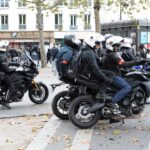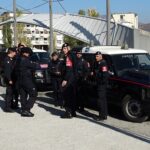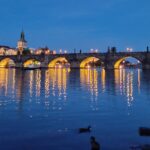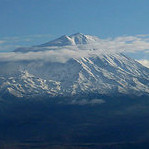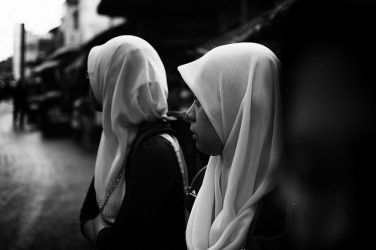How can a far-right ally, Russophile semi-autocrat still be the EU’s best bet for a stable political situation in the Balkans? E&M Editor Sindre Langmoen explains the rise and consolidation of Aleksandar Vucic, giving a glimpse into the trade-offs officials are facing when finding the right way to approach politics in former Yugoslavia.
Aleksandar Vučić, the ex-ultranationalist liberal-reformer-turned-authoritarian leader of the Republic of Serbia, recently won his second five-year term as president with 58,54% of the vote — a slight increase from the 55.06% he obtained during his first presidential elections in 2017. “This shows what I am unusually proud of, that after Nikola Pašić [Serbian and Yugoslav PM at the beginning of the 20th century], I will be the Serb who was longest in power in our country,” Vučić said after his victory.
His Serbian Progressive Party (SNS) won 42.92% of the vote, less than the 60% supermajority their coalition had gained in the 2020 elections — but these had been boycotted in protest by opposition parties, wanting to deny the SNS a semblance of legitimacy in what they decry as undemocratic conditions. The SNS’s partner party, the Socialist Party of Serbia (SPS), won 11.6%, thereby giving the government a healthy majority.
The “United for Serbia” coalition, the main opposition, won 12.9% while the green-left opposition coalition Moramo won 4.4%. Moramo, “We Must”, is a new movement that emerged from broad environmental protests last year. Three far-right parties also entered parliament including NADA (5.4%), Dveri (“Doors”) (4%) and the newcomers Zavetnici (“Oathkeepers”) (3.9%).
His victory comes after images of thousands of pro-Russian protesters in Belgrade marching in support of the Ukraine invasion made the rounds across international media. Some commentators described the election as characterized by the resurgence of the anti-EU, pro-Russian far-right in view of the events in Ukraine, a view repeated by Vučić himself in his victory speech: “The impact of the Ukrainian crisis on the elections results is huge,” he said. “Serbia has moved dramatically to the right.”
The reality is more complex than a rabidly right-wing populace, unquestioningly embracing Russian propaganda while rejecting the advances of the West. Ukraine has certainly played a significant role in Serbian politics, but it would be inaccurate to say that the Serbian people support the invasion. And while the narrative of a strong right-wing turn is flawed, the political successes of Vučić and the history of the far-right in Serbia are indeed intertwined and worth an analysis.
Blessed by Brussels
The EU is the single largest donor in the Republic of Serbia, and has provided more than three billion euros in funds over the last 20 years and additional billions of euros through EU pre-accession programs and other regional and transnational programs.
Vučić has been appreciated by the West for his promises of stability, his ability to restrain the radical nationalist forces, and his pro-EU position and collaboration. Brussels has been happy to tolerate Vučić’s soft autocracy while Serbia remains outside the EU (as opposed to Viktor Orban’s illiberalism), since the Serbian president has proved to be a reliable partner willing to bolster EU goals in the Balkans.
Vučić has been appreciated by the West for his promises of stability, his ability to restrain the radical nationalist forces, and his pro-EU position and collaboration.
It is under Vučić that the greatest diplomatic steps have been taken to normalize relations with Kosovo, a step that is highly unpopular among significant parts of the population. Without his influence over the more radical forces, these steps would have been more difficult to take. And while there is understandably no intention or popular desire for Serbia to join NATO, Belgrade has cooperated with NATO to the highest possible level for a non-member by entering an Individual Partnership Action Plan and participating in NATO military training exercises. It is also under Vučić’s rule that Serbia has undergone a series of austerity measures called for by the International Monetary Fund, which are part of the economic reforms required by the EU.
It is clear, therefore, why Brussels has avoided pressing too much for democratization in Serbia, and why the voices against Vučić’s authoritarianism and concentration of power have remained somewhat timid, in particular in the higher levels of EU bureaucracy.
Vučić‘s Rise
Aleksandar Vučić first rose to power as the Minister of Information under Milošević’s authoritarian regime and during the Kosovo war, between 1998 and 2000. During this period he was a member of the ultranationalist Serbian Radical Party (SRS), and this period was characterized by widespread censorship and the dissemination nationalist propaganda legitimizing the perpetration of atrocities against minorities such as Albanians in Kosovo.
After Milošević’s defeat and overthrow in the 2000 elections, Vučić spent the next 12 years in the opposition, aligning himself with the more EU-friendly and moderate faction of the SRS, which later split into Vučić’s current Serbian Progressive Party. Now, when questioned about his past politics, the president states that “we all made some terrible mistakes and I’m not ashamed to confess that,” and seeks to emphasize the need for good relations with the west in order to “find a better way for our people”.
The SNS returned to government in 2012, with Vučić serving briefly as Minister of Defense and becoming party leader. During this time, he was able to build his authority and influence enabling him to lead the SNS-led government through three parliamentary elections and be elected Prime Minister of Serbia in 2014, then President of Serbia in 2017 and again in 2022. During these ten years of rule, despite the presidency being a largely ceremonial power, Vučić has used his position as the president of the largest party to establish personal dominance over the political landscape.
Consolidation, Corruption & Capture
Since its emergence to power in 2012, the SNS has tripled its membership to at least 750,000 in a country of less than 7 million, therefore growing to become the largest political party in Europe next to Putin’s United Russia. This has at least in part been a result of the widespread state capture by the party, which has set up a complex patronage system according to which access to employment in the public sector is unofficially tied to party membership.
Another feature of SNS rule has been the capture of most media, either through direct ownership or through various forms of state financing to pro-government media.
Another feature of SNS rule has been the capture of most media, either through direct ownership or through various forms of state financing to pro-government media. This has been accompanied by the repression of remaining independent and investigative journalism through intimidation (libel lawsuits are commonplace), smear campaigns (through omnipresent pro-government tabloid media and TV) and physical violence. In 2019 the Freedom House press freedom watchdog organisation downgraded the status of Serbia’s media landscape from “free” to “partly free” for the first time in more than a decade. These developments sparked the 2020 boycott of parliamentary elections, which saw the SNS gain their majority.
While Vučić rose to power promising to fight corruption in government, and indeed began by arresting unpopular oligarchs in an anti-corruption campaign, experts and journalists have documented many ties that point to a friendly relationship between his government and organized crime, which also often blends into the ultranationalist scene.
This is nothing new: collusion between the government and organized crime had already been institutionalised to a degree in socialist Yugoslavia. In the 1990s, football hooligans enthusiastically supported the nationalist cause of Milošević and even took up arms in their own paramilitary units, most infamously represented by the war criminal Arkan and his “Tigers,” who went on to commit atrocities in Bosnia and Herzegovina.
It has been amply documented that such connections did not end with Vučić in power. The Progressives have numerous ties to Serbian crime and hooligan groups, members of which sometimes run security for party events or use their skills in less official fashion to threaten or attack vocal protesters and critics, while the government turns a blind eye to trafficking and other illicit activities. Various right-wing “security” groups have been formed with close connections to the government, which they see as an ally. The Progressive party has also developed alliances with Serbian organized crime figures within Kosovo such as Milan Radoicic, an infamous underworld-linked figure who dominates the Kosovo Serb political scene both unofficially and through his Progressive-backed Srpska Lista party.
Swallowing the Far-Right
Vučić’s Progressives have also, experts argue, managed to tranquilize the far-right, including the radical ‘ultras’ football scene, bringing many into its ranks. An illustration of this was when the Belgrade Pride parade was held in 2014; the parade had been canceled ever since the 2010 Pride was attacked by thousands of far-right extremists and ultras. Under Vučić’s rule, who sought to deepen ties with the EU, any similar attacks by ultras and far-right protesters were conspicuously absent.
Election results have shown similar trends: the Radicals polled strongest in 2008 with 29.5%, but almost half of the electorate of the Radicals voted Progressive in the next elections, and have generally declined since. In 2020, despite the boycott of the opposition, right-wing parties only won 12.6% of the vote (BIRN). In 2022, they gained 17.6% of the vote, perhaps through a disaffection for the government’s more moderate support for Russia and its unpopular COVID measures which triggered protests in 2020.
Three far-right parties entered parliament this year, arguably with the help of the Progressives: NADA, Dveri and the newcomers Zavetnici obtained 35 seats, the same amount as in the last non-boycotted elections in 2016. Only the rising Zavetnici obtained more than 5% of the vote, with NADA and Dveri each obtaining below 4%. Under previous circumstances only the Zavetnici would have entered parliament, however the Progressive-led government recently lowered the threshold to enter parliament from five to three per cent, enabling the entrance of the far right.
These parties have also softened their rhetoric and polished their image. They act less rabid and radical than before, avoiding heavy criticism of the government and espousing an alt-right-inspired act and aesthetic. They are therefore offered a lot of space and uncritical promotion in pro-government media. They have all collaborated with the Progressive government, all the while Vučić has been happy to strengthen these parties, in order to contrast himself as a voice of reason and guarantor of stability, both for his domestic audience and the European one.
Ukraine, Russia & Non-Alignment
Vučić’s response to the Russian invasion of Ukraine has been carefully managed: Serbia has officially joined the majority chorus at the UN condemning Russia and decrying the attack on Ukrainian sovereignty, but has stopped short of joining the barrage of anti-Russian sanctions. Many cynical commentators perceive Belgrade’s friendly relationship with actors such as Moscow and Beijing as nothing more than solidarity with anti-Western, anti-liberal autocrats. The fact that Serbia is almost entirely dependent on Russian gas does not help. Some understand it as bitterness resulting from being on the receiving side of the NATO intervention in the 1990s, which sought to put an end to Milošević’s ethnic cleansing campaign in Kosovo.
Certainly there is some truth to this: there is a deep-sitting resentment against the West, for, as is commonly felt, stopping Serbia from defending its territory and people against terrorism and secession.
Certainly there is some truth to this: there is a deep-sitting resentment against the West, for, as is commonly felt, stopping Serbia from defending its territory and people against terrorism and secession. On top of that, there is leftover resentment for the West’s perceived role in the dismantlement of Yugoslavia. Meanwhile, Serbs have not forgotten that both China and Russia stood by them when they were ostracized by the West, and that Russia has blocked Kosovo’s entry to the United Nations.
But there is an important historical legacy also influencing Serbia’s international positioning and behavior: Socialist Yugoslavia, under the leadership of Marshal Josip Broz Tito, was a founding member and leading figure of the international Non-Aligned Movement that emerged during the Cold War, which enabled the federation to develop friendly relations across the political and ideological boundaries of the time. Serbia has inherited its position within the NAM, and this is why Serbia today, for instance, enjoys friendly ties with both Israel and Palestine, and strives to maintain positive relations across the spectrum while refraining from being involved in foreign conflicts.
50% of Serbs believe that Serbia should remain neutral in the context of the Russian invasion, while 21% believe Serbia should side with Russia and only 13% believe Serbia should side with the EU and Ukraine
Polls show that 50% of Serbs believe that Serbia should remain neutral in the context of the Russian invasion, while 21% believe Serbia should side with Russia and only 13% believe Serbia should side with the EU and Ukraine. Half of respondents also fear the spread of the Russian-Ukrainian war into former Yugoslavia. Another poll showed that 76% of Serbian citizens believe Russia to be a friend of Serbia, and the same share of respondents do not believe that Serbia should heed the EU and impose sanctions on Russia.
Recent Turbulences
In Kosovo, which Serbia still does not recognize as independent, the government broke with tradition and refused to allow polling centers to be sat up within Kosovar borders for the Kosovo Serbian minority, arguing it to be a breach of sovereignty: no other sovereign countries would allow a foreign election to be held on its territory, the government argued. In a letter to the European Union, Prime Minister Albin Kurti lamented that “Serbia’s illegal structures are trying to hold an election in our territory as if our government did not exist.”
The so-called Quint countries (France, Germany, Italy and the United Kingdom, led by the US), expressed their “great disappointment” with Prishtina’s decision not to facilitate voting for Kosovo Serbs and have accused Kosovo of “failing to protect the […] rights of all citizens” but ultimately, Kosovo Serbs traveled to Serbian territory to cast their votes, with no major incidents.
In January, following months of mass protests seeing tens of thousands of Serbs taking the streets and a rise in influence of the environmentalist movement, Vučić finally announced the axing of a controversial lithium mine project by Anglo-Australian mining company Rio Tinto, which would have caused irreparable damage to the landscape and likely contaminated water supplies. These protests led to the formation of the Moramo political coalition, which competed in the parliamentary elections for the first time this year.
Another scandal that shook the country was the claim of exploitation and human trafficking of Vietnamese workers used in the construction of a factory by the Chinese Shandong LingLong tire company. Allegations of confiscated passports, “entrapping” contracts, limited freedom of movement and deception of workers were largely met with silence and inaction by the Serbian government, despite calls for investigation by the European Parliament, the UN and numerous NGOs. Conditions only improved after the situation received widespread attention through the work of media and activists.
Here to Stay
Despite the protests and scandals of this year, and despite the massive “One of Five million” anti-government protests that lasted from 2018 to 2020 — the most prolonged mass anti-government protests in Serbia since the movement that led to the overthrow of Milošević in 2000 — Vučić’s electoral success has only increased. Independent media and serious opposition movements and figures are under constant threat, the state is no longer considered a functioning democracy, and is being hollowed out through corruption, nepotism and organized crime. Despite this, Belgrade is valued as a partner by Brussels — out of anxiety for what would happen were there no Vučić. With his nationalist credentials and grasp on the country, he is seen as an ally with the ability to negotiate muddy problems such as Kosovo’s secession with relative sensitivity and keep the scarier ultranationalists at bay.
Photo by Boris Dimitrov for Wikimedia Commons



